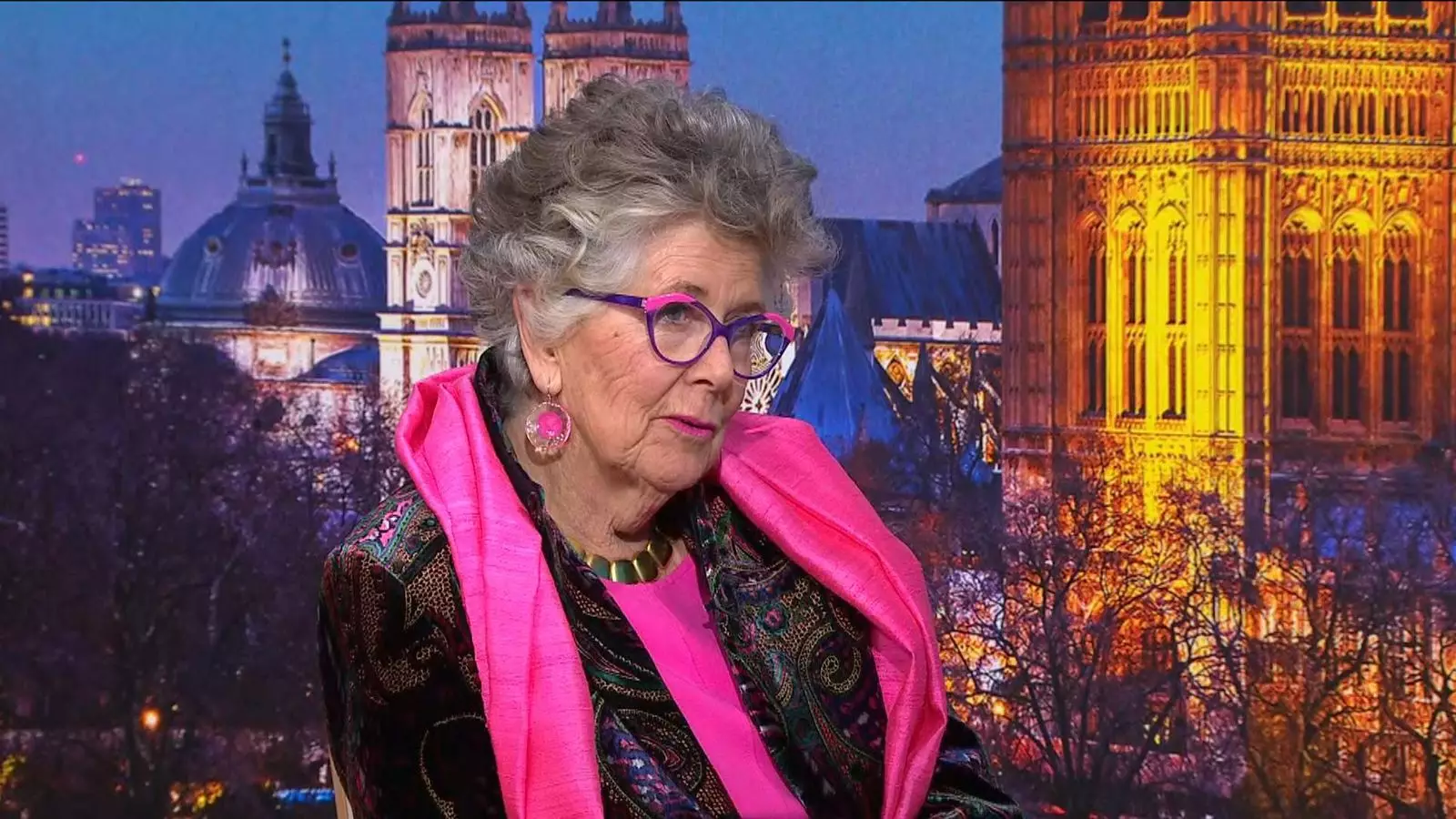The discussion surrounding assisted dying has become particularly poignant in recent times, driven by personal narratives and high-profile advocates. Among them is Dame Prue Leith, the well-known television presenter of “The Great British Bake Off,” who presents a deeply personal case for legal reforms in assisted dying legislation. As the Terminally Ill Adults (End of Life) Bill approaches debate in the UK Commons, Dame Prue’s insights reveal the intricacies of this legal and ethical dilemma—especially as she draws from her personal experiences of witnessing family members in distress during their final moments.
Dame Prue’s advocacy for a change in assisted dying legislation is influenced starkly by her brother David’s harrowing battle with bone cancer. Her testimony reveals the emotional toll of observing someone one loves in a state of agony, leading her to question the adequacy of existing palliative care options. In a society that champions compassion, her account serves as a wake-up call about the limitations of current medical practices designed to manage pain and suffering at life’s end. Despite the best intentions of healthcare providers, the reality can often involve extended suffering, leaving both patients and their families feeling helpless.
She paints a vivid picture of her brother’s last days, detailing the frustrating intervals of morphine administration that left him—and the ward—suffering intensely. Such descriptions encapsulate a significant aspect of the debate: the quality of life for terminally ill patients. If these experiences were more widely known and recognized, might public opinion shift in favor of more empathetic and flexible laws regarding end-of-life choices?
Interestingly, Dame Prue’s son, Danny Kruger, who holds a political position as the shadow work and pensions minister, represents an opposing stance. His belief that if the UK had “top quality palliative care,” the need for assisted dying would vanish altogether is a perspective rooted in the hope that improving existing systems is the preferable route. But this sentiment raises critical questions: How feasible is it to ensure that all patients receive top-tier palliative care? Could there be a discrepancy in access depending on regional or socioeconomic factors?
While Dame Prue emphasizes the immediacy of compassionate assistance for those in unbearable pain, her son’s position underscores a compelling argument that many share: that better care should be the priority rather than providing an option for assisted dying. This intergenerational conflict illustrates a broader societal divide—how do we reconcile the push for autonomy in end-of-life decisions with the urgency to improve care standards?
As MPs prepare to debate the proposed law, the stakes are undeniably high. The implications of legislation allowing assisted dying could redefine the fundamental values surrounding life and autonomy in the UK. Proponents like Dame Prue argue that the current legal framework is inadequate for addressing the needs of terminally ill patients, claiming there’s no functional or moral justification for enduring unnecessary suffering when the option to die with dignity exists.
On the other hand, opponents cite fears of a “slippery slope” towards normalization of euthanasia or compulsory decisions, expressing concerns that vulnerable populations may be coerced into making irreversible choices without adequate safeguards. This perception of assisted dying as a risk to societal values and the sanctity of life complicates the conversation.
While the path toward enacted change remains uncertain, Dame Prue Leith’s powerful testimony has ignited a crucial dialogue that demands attention. Whether through lobbying for legislative reforms or improving palliative care services, her passionate advocacy underscores the desperation for a system that prioritizes compassion and understanding in the face of terminal illness. The discussions surrounding the Terminally Ill Adults (End of Life) Bill represent much more than a political maneuver—they encapsulate the real-life struggles faced by families and the profound need for change in how society approaches death.
As the conversation unfolds, it is imperative for advocates on all sides to continue engaging thoughtfully and consider the multifaceted aspects of this sensitive issue. Through constructive dialogue, there exists the potential to create laws that not only respect personal choices but also enhance the quality of care, paving the way for a more compassionate society.


Leave a Reply